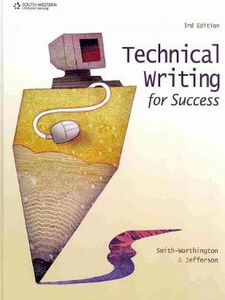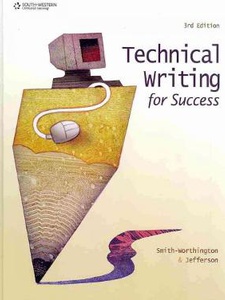By B2, learners taking an exam should be comfortable using conditionals, which is why we’ve designed 10 First (FCE) conditionals transformations. The key-word transformations activity is one of the likely areas that where you may encounter conditionals (they could also pop up in open cloze).
The important thing at this level is perfecting conditionals. You shouldn’t be stumbling around them or having to think carefully about the grammar. It should come naturally. What that requires is practice. Conditionals are formulaic to an extent, but also have certain flexibility which can be glossed over in grammar rules.
Types of Conditionals
There are five types of conditionals that a B2 student should be able to use comfortably. At more advanced levels, we can start to pick these conditionals apart a little bit, but for B2, make sure that you’ve got the basics covered.
Zero conditional – If I see someone eating, I get hungry – These conditionals describe situations that are always true. We use present tenses in both the conditional clause and the consequence.
1st conditional – If I pass my exam, I will celebrate – This is a real situation with a real consequence. The conditionals are based in reality, but the future consequence is dependent on meeting the conditional. We use present + future. Be careful with other conjunctions which can substitute if (e.g. unless, when, as soon as)
2nd conditional – If I had enough money, I would buy a house – Now we are discussing hypothetical situations. The conditional clause is an unreal situation with a corresponding unreal consequence. These can be either unrealistic situations or impossible ones. We use past tenses in the conditional clause and modal verbs for the consequence. B2 level is a good time to introduce 2nd conditionals with provided/as long as.
3rd conditional – If I had gone to university, I would have been more successful – This is where we start discussing the past. An unreal past condition with an unreal past consequence. To form this conditional you need to use past perfect and a past modal.
Mixed conditionals – If I had made a sandwich, I wouldn’t be hungry at the moment – Mixed conditionals are a combination of the 2nd and 3rd. It’s an unreal past condition with an unreal present consequence. While they may appear confusing at first, mixed conditionals are actually quite common because we constantly lament our past and how it affects our present. Use the past perfect and a modal verb to form them. Note that mixed conditionals can also be flipped and have a permanent unreal situation with an unreal past consequence, but this is less common.
The materials
After you’ve covered the grammar and done a nice fun communicative task using conditionals, your students still need practice seeing the grammar in an exam format.
Here we have 10 transformations using conditionals. They have been designed to be challenging. I often find transformations with conditionals in course books are too easy, but these will force your students to push the limits of their grammar knowledge.
EXAM PART: Use of English
EXAM SKILLS: Using grammar appropriate to the level (B2), transformations
TIME: 20 minutes + feedback
PREPARATION: One copy of the worksheet per student
Download
First (FCE) – Transformations – Conditionals
KEY WORD TRANSFORMATION
Conditionals
1. I only told you because I thought you would be interested. TOLD I. . . you if I thought you weren’t interested.
would not have told
2. I won’t organise the party unless you arrange the food. LONG I’ll organise the party. . . arrange the food.
as long as you so long as you
3. I think it would be a good idea to speak to the manager first. WERE If. . . speak to the manager first.
I were you I would I were you I’d I was you I would (more informal) I was you I’d (more informal)
4. If you do the washing up I’ll make the coffee. PROVIDED I’ll make the coffee. . . the washing up.
provided you do
5. You’re tired because you keep staying up late. WERE If. . . to bed earlier, you wouldn’t be so tired.
you were to go
6. You never enter competitions so you’ll never win anything. MIGHT If you entered competitions. . . something.
you might win
7. The reason I haven’t got much money is because they didn’t give me promotion. POOR If they had given me promotion I. . . now.
wouldn’t be so poor would not be so poor
8. I’ve been so happy since I met you. MIGHT I. . . so happy if I hadn’t met you.
might not have been
Comparative/ Superlative
1. The food was so good we had to leave a tip. SUCH It. . . that we had to leave a tip.
was such good food
2. The computer was too expensive for me to buy. ENOUGH I. . . money to buy the computer.
did not have enough didn’t have enough
3. It’s the most beautiful painting I’ve ever seen. SEEN I. . beautiful painting.
have never seen such a ‘ve never seen such a have never seen a more ‘ve never seen a more
4. This summer has been much cooler than last year. COOL Last summer. . . this year.
wasn’t as cool as was not as cool as
5. I’m not as good at maths as you. BETTER You. . . me.
are better at maths than ‘re better at maths than can do maths better than
6. The course wasn’t as easy as I’d expected. MORE The course. . . I’d expected.
was more difficult than
7. This car isn’t safe enough to drive. DANGEROUS This car. . . drive.
‘s too dangerous to is too dangerous to
8. This exercise is easier than the last one. HARD This exercise. . . the last one.
is not as hard as isn’t as hard as
Passive
1. The examiner tells candidates the regulations at the beginning of the exam. TOLD At the beginning of the exam candidates. . . the regulations.
are told about are told
2. Did we send that letter to Mr Thomas? WAS Do you know if. . . to Mr Thomas?
that letter was sent the letter was sent
3. We haven’t arranged a date for the wedding yet. BEEN A date for the wedding. . . yet.
has not been arranged hasn’t been arranged has not been set hasn’t been set
4. They will have given him the news by now. TOLD He. . . the news by now.
will have been told ‘ll have been told
5. Experts estimate that most people now have access to the Internet. IS. . . that most people now have access to the Internet.
It is estimated It’s estimated It is estimated by experts It’s estimated by experts
6. The garage on the corner usually repairs my car. HAVE I. . . by the garage on the corner.
usually have my car repaired usually get my car repaired
7. Steve definitely didn’t write that essay. HAVE That essay. . . by Steve.
can’t have been written won’t have been written cannot have been written will not have been written
8. The police have cancelled the demonstration. HAS The demonstration. . . by the police.
has been cancelled ‘s been cancelled
Direct and Indirect Speech
1. ‘What do you think of the college? ‘ ASKED She . . of the college. .
asked me what I thought asked what I thought
2. ‘I’ll call you later tonight, ‘ Keith promised. WOULD Keith promised that . . . night.
he would call later that he would phone later that he would telephone later that he would ring later that
3. ‘I didn’t break the window, ‘ said the boy. DENIED The boy . . . the window
denied breaking
4. ‘Why don’t you come this evening? ‘ SUGGESTED She . . . that evening.
suggested coming suggested that I come suggested that we come
5. ‘You look really tired, ‘ he told her. SAID He . . . really tired.
said she looked said that she looked
6. ‘You must do your homework tonight. ‘ the teacher said. TOLD The teacher . . . my homework.
told me to do
7. ‘What’s your name? ‘ he asked. KNOW He . . . what my name was.
wanted to know
8. ‘I might be late for. ‘ he told me. INFORMED He . . . might be late.
informed me that he informed me he
Recommended textbook solutions
The Language of Composition: Reading, Writing, Rhetoric
2nd Edition•ISBN: 9780312676506Lawrence Scanlon, Renee H. Shea, Robin Dissin Aufses
661 solutions
Technical Writing for Success
3rd Edition•ISBN: 9781111260804Darlene Smith-Worthington, Sue Jefferson
468 solutions
Edge Reading, Writing and Language: Level C
ISBN: 9781285439594David W. Moore, Deborah Short, Michael W. Smith
304 solutions
Technical Writing for Success
3rd Edition•ISBN: 9781133467199Darlene Smith-Worthington, Sue Jefferson
468 solutions
Are key word transformations and conditionals giving you a lot of headache?
In this editable PDF file you will find an outline of the key points to bear in mind when transforming a sentence that has conditionals as a tested element. There is also a checklist of all language areas you need to review in order to get a perfect score on Part 4 of Use of English with short examples. Last but not least, you get 10 key word transformation examples to test yourself.
Find more worksheets here.
-
Task Type: Key Word Transformations
-
Focus: Lexical and grammatical
-
-
Format: Six separate items, each with a lead-in sentence and a gapped second
sentence to be completed in two to five words, one of which is a given
‘key word’
-
-
Number of questions: 6
-
How many marks are there: Up to two marks for each correct answer
What is testing:
- modal verbs and semi-modal verbы
- phrasal verbs
- verb patterns
- direct speach to reported speach
- active voice to passive voice
- linking words/do and make/idioms/conditionals/unreal past
General Advice
- Write between two and five words as your answer
- Contractions like can’t or mustn’t are counted as two words
- Take a guess if necessary! You will not loose marks
- Remember that you cannot change the key word
cambridge english first certificate (fce) test
Key Word Transformations
- FCE : Key Word Transformations 1
- FCE : Key Word Transformations 2
- FCE : Key Word Transformations 3
- FCE : Key Word Transformations 4
- FCE : Key Word Transformations 5
- FCE : Key Word Transformations 6
- FCE : Key Word Transformations 7
- FCE : Key Word Transformations 8
- FCE : Key Word Transformations 9
- FCE : Key Word Transformations 10
- FCE : Key Word Transformations 11
- FCE : Key Word Transformations 12
- FCE : Key Word Transformations 13
- FCE : Key Word Transformations 14
- FCE : Key Word Transformations 15
- FCE : Key Word Transformations 16
- FCE : Key Word Transformations 17
- FCE : Key Word Transformations 18
- FCE : Key Word Transformations 19
- FCE : Key Word Transformations 20
Complete the second sentence so that it has a similar meaning to the first sentence, using the word given. Do not change the word given. You must use between three and eight words, including the word given.
Without this new diet, Henry would never have lost so much weight. it
Had …………………………………………………………… this new diet, Henry would never have lost so much weight.
Unless the plans change, we’ll see you on the 19th . no
Provided …………………………………………………………the plans, we’ll see you on the 19th.
If you applied now, there’s a good chance you would get the job. apply
Were ………………………………………………………………… , there’s a good chance you would get the job.
I didn’t know about your problem so I didn’t offer to help, have
If I’d known about your problem, ……………………………………………………………. to help.
It could get cold at night, so take some warm clothes, in
Take some warm clothes ………………………………………………………………………….. cold at night.
I’d love to travel the world if I didn’t have to pay off my mortgage, having
Were ………………………………………………………………………….. to pay off my mortgage, I’d love to travel the world.
Ten years ago, people would have complained at seeing this film, seen
Had ………………………………………………………………………………., they would have complained.
Drivers are allowed to park here if they display a local resident permit, condition
Drivers are allowed to park here ……………………………………………………………… they display a local resident permit.
Sentences with KEY
1.
Without this new diet, Henry would never have lost so much weight. it
Had
……………………………………………………………
this new diet, Henry would never have lost so much weight.
KEY
Unless the plans change, we’ll see you on the 19th . no
Provided …………………………………………………………the plans, we’ll see you on the 19th.
KEY
(that) there are no chages to
3.
If you applied now, there’s a good chance you would get the job. apply
Were ………………………………………………………………… , there’s a good chance you would get the job.
KEY
I didn’t know about your problem so I didn’t offer to help, have
If I’d known about your problem, ……………………………………………………………. to help.
KEY
It could get cold at night, so take some warm clothes, in
Take some warm clothes ………………………………………………………………………….. cold at night.
KEY
I’d love to travel the world if I didn’t have to pay off my mortgage, having
Were
…………………………………………………………………………..
to pay off my mortgage, I’d love to travel the world.
KEY
it not for having/ I not having
7.
Ten years ago, people would have complained at seeing this film, seen
Had ………………………………………………………………………………., they would have complained.
KEY
people seen this film ten years ago
8.
Drivers are allowed to park here if they display a local resident permit, condition
Drivers are allowed to park here
………………………………………………………………
they display a local resident permit.
KEY
on condition that
Complete the second sentence so that it has a similar meaning to the
first sentence, using the word given. Do not change the word given. You
must use between three and eight words, including the word given.
- Without this new diet, Henry would never have lost so much weight. it
Had
……………………………………………………………
this new diet, Henry would never have lost so much weight.
- Unless the plans change, we’ll see you on the 19th . no
Provided …………………………………………………………the plans, we’ll see you on the 19th.
- If you applied now, there’s a good chance you would get the job. apply
Were ………………………………………………………………… , there’s a good chance you would get the job.
- I didn’t know about your problem so I didn’t offer to help. have
If I’d known about your problem, ……………………………………………………………. to help.
- It could get cold at night, so take some warm clothes. in
Take some warm clothes ………………………………………………………………………….. cold at night.
- I’d love to travel the world if I didn’t have to pay off my mortgage. having
Were
…………………………………………………………………………..
to pay off my mortgage, I’d love to travel the world.
- Ten years ago, people would have complained at seeing this film. seen
Had ………………………………………………………………………………., they would have complained.
- Drivers are allowed to park here if they display a local resident permit. condition
Drivers are allowed to park here
………………………………………………………………
they display a local resident permit.
KEY
1. it not been for
2. (that) there are no chages to
3. you to apply now
4. I would have offered
5. in case it gets
6. it not for having/ I not having
7. people seen this film ten years ago
8. on condition that












































































